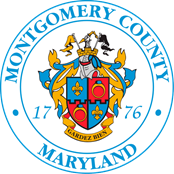
Flexible Spending Accounts
Administrator: Voya
Website: www.voya.com or Member Login
Phone: 1-888-401-3539
Both the health care and child care flexible spending accounts allow you to use before-tax dollars to pay for certain eligible health and dependent care expenses. With each account, you set aside a certain amount of your money from each paycheck before taxes are calculated. After you incur eligible expenses, you submit a claim with supporting evidence, such as bills or receipts, to the County’s third party administrator for reimbursement. You have until April 30th of the following year to submit claims for expenses incurred during each calendar year and until the March 15th following the end of the calendar year to incur expenses applicable to the prior year’s election. If you do not have expenses or request reimbursement by the deadline dates, you will forfeit any money remaining in your account. Leftover money cannot be returned to you, nor can it be used the following year. The health care and dependent care flexible spending accounts are separate. You must enroll separately in each account and you may not transfer contributions between accounts. Also, in order to participate in these accounts, you must enroll each year.
| Tax Savings Example | Before Enrolling | After Enrolling |
| Annual Earnings | $45,000 | $45,000 |
| Annual Commuter Choice Transit FSA Election | $0 | $1,944 |
| Annual Child Care FSA Election | $0 | $5,000 |
| Annual Health Care FSA Election | $0 | $1,500 |
| Taxable Income | $45,000 | $36,556 |
| Approximate Taxes Paid (27.65%) | $12,442.50 | $10,107.74 |
| Annual Tax Savings/Increase in spendable Income | $0 | $2,334.76 |
Resources
The health care flexible spending account is for reimbursement of eligible expenses not covered by your medical, prescription, dental and vision benefits, as well as the deductibles and copayments associated with these benefits. The expenses may be incurred by you or any person who qualifies as your dependent under the applicable provisions of the Internal Revenue Code. For the annual plan limit, refer to the FSA Comparison chart.
Resources
Eligible Healthcare and Childcare FSA Expenses
Healthcare & Childcare FSA Presentation Video
The Child/Dependent Care flexible spending account is for reimbursement of eligible expenses associated with the care of qualifying individuals that enables you (and your spouse, if you are married) to work. For the annual plan limit, refer to the FSA Comparison chart.
Qualifying individuals include:
- Your dependent children under the age of 13. However, in the case of divorced parents, the noncustodial parent cannot receive reimbursements even if the parent claims the exemption and the custodial parent may be entitled to receive reimbursements.
- Your spouse who is physically or mentally incapable of self care, who resides with you for more than half the year.
- Your dependent who is physically or mentally incapable of self care, who resides with you for more than half the year.
- Babysitters in your home or dependent care provided in the babysitter's home while you (and your spouse, if you are married) are working.
- Day care centers, if they are fully licensed.
Resources
The Commuter Choice Mass Transit Account enables employees (not their dependents) to use pre-tax dollars for eligible mass transit pass expenses. A transit pass is a pass, token, fare card or voucher used for mass transit transportation. For the annual plan limit and eligibility information, refer to the FSA Comparison chart.
How it works: Your monthly elected amount is deducted from your paycheck each pay period — prior to Federal, State and FICA taxes being calculated — so you pay less in taxes. That amount is placed in your FSA. You then use your FLEXEXPRESS card to purchase a mass transit pass that best suits your needs. That amount is deducted from your account. Also, unlike the Child Care or Health Care FSAs, you can enroll, reduce, increase or stop your election during the plan year.
Important: Employees who use the Washington Metropolitan Area Transit Authority (WMATA) metro rail system will need to purchase or reload fare cards, obtain receipts and then file a claim form for reimbursement. WMATA does not allow the use of the FSA debit card to purchase Metro fare cards or passes.
| Eligible Expenses | Ineligible Expenses |
|---|---|
|
|
Resources
Commuter Choice Presentation Video
